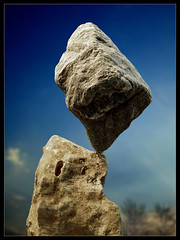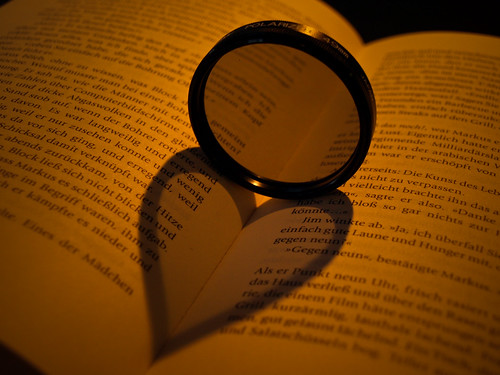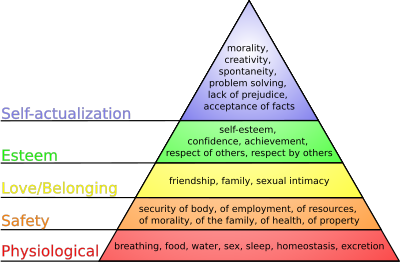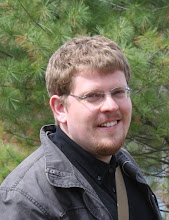For when Getting Things Done isn't as easy as it sounds
For 2+ years I've been interested in improving my productivity, that is, being more effective at getting the things done that I want to do or need to do. I originally gravitated to the Getting Things Done (GTD) system and while it has some really great ideas I struggled to get it to work for me, and haven't really managed to "internalise" this kind of thinking and make it second nature. Ultimately I realised that's because all it is is a system, it seems to assume that you are the sort of person who can easily change the way you operate and establish new habits without any difficulty (For example, if you haven't been used to keeping lists of actions up to date and checking them regularly, because you are used to doing it all in your head, then any list based system will be difficult to adapt to). And it's not just GTD, there are literally hundreds of time management techniques and software tools out there - all claiming to be the solution to your problem.
So, what do I mean by "the Zen of Productivity"?
Zen is quite an abstract concept from Eastern philosophy; It's often used to refer to a state of mind where everything is harmonious, the mind is at peace and everything happens effortlessly. In the context of productivity what this means is being in a state of mind where you don't need to think about your projects and actions, you aren't worrying about things you should do, or haven't done, and you are effortlessly achieving the things you want to achieve and need to achieve - a kind of productivity Nirvana.
In fact, one of the main ideas in Getting Things Done is getting everything out of your busy mind so that you can focus on here and now, which is in line with this idea. So I spent some time digging into the less tangible aspects of productivity - not the mechanics of how to organise your life with lists, reviews, actions & projects, but rather the practical side of how you can change your life to become happier and more productive without it becoming a drain. In this blog post I'll share some of the positive ideas & thoughts I've found, so that if you are interested you can use this to help you work towards your own Zen-like state of mind.
It's all about balanceChris Pearson has an interesting angle on the subject. His theory is that to get a Zen-like state you need to balance your left brain (which likes following steps and using lists) with your right brain (which is the creative side). He suggests the best way to do this is something called stream-of-consciousness writing, where you spend 15 minutes a day writing down anything that comes into your head.. As he puts it "your goal is to unleash the creative chaos in the right brain, temporarily freeing it from the suffocating bully that is your left brain."
I dabble in creative writing anyway, so I thought I'd give this a go, I tried it for a couple of weeks. It was interesting, it certainly felt good to empty my head of a whole lot of random thoughts and get them out on paper - and I found that once all the "things to worry about" had made it out onto the page that I was certainly more creative. One thing I did notice is that my left brain did keep wanting to take control, or at least that's what I think it was - I was wanting to write in full sentences with a coherent flow, in a way that made sense - and I was certainly aware that this inhibited the "flow" from my brain to the page. I can see why some writers say that the key is to "just write" even if it's terrible - get the ideas out on the page and then massage them more & more until they are beautiful.After a couple of weeks I got out of the habit of doing this. It was an interesting exercise, but I wasn't convinced that it had any bearing on my ability to manage my time & tasks better. I'd certainly recommend it as a technique for people who want to move from more logical work to more creative work such as art, music, or writing and train their brain to think in that way. I think I'm a reasonably creative person anyway as well as having a very logical side, so maybe there wasn't much I could have got from this in the first place, maybe I already am reasonably balanced? (Some people I know might disagree! :-) )
Get yourself addicted to getting things done
Marc Andreesen, in his guide to productivity, does an excellent job of taking the human side of getting things done into account, unlike many other productivity guides. For example, he says that one of the ways to feel more productive is just to make sure you get the maximum positive feeling from all the things you are already doing. He suggests having an "Anti-To Do List" (or to put it another way, a list of things you have done). Each time you do something useful, you write it down on the list, and cross it off, which gives you a little rush of endorphins that makes you feel good. By doing this several times a day you can feel a lot better about your productivity without actually doing any more work! I could see this working, and I suppose the great thing is you go home at the end of the day with a list of things you have achieved. Marc carries on with the endorphins theme and suggests that this is why email is addictive. If you're anything like me, working at a company where e-mail is the default means of communication, it's easy to spend the whole morning just responding to e-mails and then think "what have I actually achieved?". Marc offers an explanation as to why we do this even when there are other things that need doing: Replying to an email also gives you the same little rush of endorphins that you get like crossing something off on your list - but the difference is you haven't necessarily achieved anything. In the moment, you feel like you're achieving something, because you get that buzz - but you end up disappointed because you're cheating yourself.
This makes a lot of sense, and Marc extends this to some productivity advice for the office-desk-bound among us: Limit yourself to checking email exactly twice a day, and keep your email client shut down at other times. He also says that you should disable notifications otherwise you end up being interrupted from your real work. I definitely agree with this one. No e-mail is important enough to warrant interrupting me. If it's that important, they'll call me. For the same reasons he suggests not answering your phone, and dealing with your voicemails in batches - because all these things can trick you into thinking you're being productive, but you won't be doing the things you set out to do. I guess to a certain extent this depends on your job. Another interesting question is instant messaging - in some companies this can be a vital means of communications, sometimes used more than the the phone - so it's hard to turn it off. Again, it's all about balance - turning it off when you really know you don't want to be interrupted.
Trick yourself into being more productive
Another idea that Marc talks about is that by recognising how you are working through your to-dos, you can actually trick yourself into being more productive. He calls this "Structured Procrastination", which was originally proposed by a philosophy professor called John Perry, and he says you should never fight the tendency to procrastinate – instead, you should use it to your advantage in order to get other things done. The idea that if there's a task you don't want to do, you'll often end up doing many many other things you have putting off (for example, you should be doing your tax return but you don't want to do it so you end up mowing the lawn, tidying your desk, doing an urgent bit of DIY, etc. etc) He says you can turn this to your advantage by finding something that isn't really important or urgent but that you are unlikely to get round to doing, then put it at the top of your list and treat it like it is urgent - the idea being you end up doing all the other things that are really important instead. It's an interesting idea, I can certainly see it working for certain people - again it will be down to understanding how you yourself tick whether this will work for you.
Another way of thinking about your productivity is to think more about what things you allow to make it onto your to-do list. Marc quotes Hollywood producer Robert Evans: "Only agree to new commitments when both your head and your heart say yes." If you don't do this - you'll end committed to something that you don't really care about because part of you feels obligated or thinks it would a good thing. I can think of many examples of this from my own life and while I don't think I had expressed it so clearly I had come to a similar realisation.
For example, a friend recently asked me if I was interesting in joining in with him on a new website venture as a side project to make some extra income. Now I've always fancied the idea of this, I certainly have the skills, and who couldn't use some extra cash - but even though there were many good reasons to get involved, my gut feeling was not to get involved, and before you know it I found myself saying "No". I think I just wasn't excited about the idea and my heart wasn't in it. I could have easily said "Yes" just because I think it would be a good thing to do - and would have ended up committed to it without any real emotional attachment to it - Not a recipe for success, I'm sure you'll agree. A similar example is with charities & voluntary groups I get involved in - where aside from my main involvement I end up helping with writing things or coding things or other technical admin work just because I can - and I end up dissatisfied because that isn't what I joined the organisation to do. I'm getting better now at only committing to those things which not only make sense logically but feel right as well.
You also need to be wary about what tasks other people send your way. Often people will try and offload their monkeys onto you (the monkey being a metaphor for a task or responsibility they don't want). One proposed solution to this when saying "No" doesn't work is "Strategic Incompetence". When someone forces you to do something, you say you are not the right person and will probably do a bad job of it, then you make sure you really screw it up - and you won't be asked again. It's a high risk approach, and you have to be really good at the other things you are doing.. but it might work!
There's another possibility to be aware of too, you need to be aware of when you're getting overloaded. It seems in business that quite often a lot of work can pile up with a particular person because they are "the right person to do it" or "the only person who knows how to do it". This can be very dangerous for the individual, who quickly becomes overwhelmed, not only can they not get to these new tasks but the ones they are already doing and their existing relationships may suffer as the person becomes more stressed about the work they are not doing. I experienced this at work myself recently and learnt an important lesson, that sometimes it is ok to say "No", even to your boss. Know what you can reasonably do and flat-out refuse any work beyond that. Suggest a time in the future when you can do it (or better still, somebody else entirely - as you will still think about it if you know it is coming.)
Make sure you notice when the cheese runs out
Any effective & productive person needs to regularly think at some level about what things they are doing and whether it meets up with their own passions and goals. Structured systems like GTD suggest a monthly review, and for some people this will be the best way. Personally I prefer a less structured approach, every now and then when I find my self with time to kill on my own, probably when I'm swimming or walking (my best thinking time) I'll just think about my life and the things I am doing and whether I need to make any changes. Marc concludes his productivity guide with a very good summing up of this, which I will paraphrase here:
Ultimately you need to keep yourself as free as possible to pursue your core interests and follow your dreams. If you're not doing something you love with the majority of your time, then it's time to make changes. This doesn't mean something that you love the idea of - but the thing you most love doing in practice.
Great advice, I think. It reminds me a little bit of Maslow's hierarchy of needs (pictured left). Everyone will be at a different level, but whether you are looking for love, acceptance or a way to express yourself creatively, go after your dreams and regularly check yourself to make sure the things you are doing in practice fit in with that.
I thoroughly recommend the book "Who moved my cheese?" by Spencer Johnson which is very relevant to this idea of revisiting your goals and reassessing where you are at regularly. The book is a parable about two mice and two humans (shrunk to mouse-size) in a maze in search of cheese. The mice find cheese, and quickly move on when it runs out. The humans on the other hand, are resistant to change, insistent that somebody moved their cheese and that if they stay in the same place they will be able to recover it. The cheese, of course, represents anything that the humans want in their life. The message is clear; be aware and adaptable, be ready to change your life and direction in pursuit of your goals.
Don't become obsessed with productivity as a goal
Jonathan Mead has written an inspiring wake-up call to productivity enthusiasts in his post entitled "The Cult of Productivity and the Art of Purposeless Living". In this he has some quite strong but wise words to say about the obsession that people can get trapped with to become more productive. Others have described this as "productivity porn", and I can certainly relate. If you feel your life needs reorganising, these productivity systems can completely draw you in and become very addictive. You spent hours tweaking your system and trying different tools. The key point that Jonathan makes is that we can easily lose track of the reason we try to be more productive - which is to be happier. If we're not careful, we've created new problems.. we're not satisfied until we've achieved everything we want to do... and when we do that we end up constantly putting our happiness in the future. Have you ever felt yourself thinking "I'll feel a lot happier once I've done x"? I know I have, so this definitely struck a chord with me. There's nothing wrong with being more productive, but the problem occurs when our happiness is determined by it. He sums it up quite well when he says "The truth is.. We're often the happiest when what we're doing has absolutely no purpose."
So, the message is that once you get into productivity as a means to an end, be careful not to make it an end itself. You will never be satisfied, because there will always be things you want to do and things you need to do to obsess over. He says one way to recognise this is when you find a lot of things in your life have become what he calls "grim duties", when they should be fun. If you think of everything as tasks to be done, it takes a lot of the joy out of your life. Have you ever found yourself putting off calling your family or friends because it's just one more to-do on your list? I made this mistake for a while - and found myself calling home less and putting it off as "another job to do" - which is crazy because I love talking to my family and friends. This is a perfect example of losing sight of the reasons for wanting to do things. If you read my earlier post about Mission Control, you will recognise these ideas of realising that we cannot possibly get everything done, indeed that very goal should questioned. Keep a vision of the reason for doing something in your mind (perhaps tying it into your dreams as Marc Andreesen suggested).
Jonathan suggests that what we need to do is to have the courage to re-evaluate, drop and re-prioritize our goals at any time. Most people in our time have a internal conflict between what they love (what they want to do) and what they feel is practical (what they should do). Ultimately he also says it's about the marriage of your heart and mind, ask yourself of everything you do "Does this make me feel alive?"
There's some very interesting points of view in the comments on that post as well, he's obviously hit a nerve of people recognising the feeling of being sucked into the productivity cult - and somebody summed up the article into a snappy motto: "Be a happy slacker!"
Go with the FlowOne of the ideas that is mentioned by a lot of people is "Flow" - which I guess is another word for what I have referred to as the Zen-like state; it might also be called being "on a roll" or "in the zone". There is a book called "Flow: The Psychology of Optimal Experience" by Mihaly Csikszentmihalyi which says that basically to be truly happy in life we need to able to experience Flow - "a state of concentration so focused that it amounts to complete absorption in an activity and results in the achievement of a perfect state of happiness". He lists nine things which can be indicators of a state of flow:- Clear goals - Expectations and rules are clear, and the goals are achievable with the skills you have.
- Focus - Delving deeply with a lot of attention and concentration onto individual parts of the task.
- A loss of self-consciousness - You are not concerned with what onlookers might think
- A distorted sense of time (maybe the origin of the phrase "time flies when you're having fun"?)
- Direct and immediate feedback so that the approach to the task can quickly be adjusted (Interestingly, this is one of the core premises of agile software development too!)
- Balance between ability level and challenge (the activity is neither too easy nor too difficult).
- A sense of personal control over the situation or activity.
- The activity is intrinsically rewarding, so there is an effortlessness of action.
- People become absorbed in their activity, and less aware of anything else
- Make sure that your goal is clear, and that everyone involved has the right expectations. Make sure you have the right skills for the task, or bring someone in who has.
- Ensure that you minimize possible distractions that would prevent you from focussing, such as alarms, phones, officemates, etc.
- If the activity is likely to make you feel self conscious, find somewhere private to do it.
- Make sure that you have a large block of time without following commitments, so that you can lose track of time without worry.
- Make sure that you have enough information about what is needed so that you can continually assess & adjust - if you need to keep checking what you've done with someone else, you'll never achieve flow.
- Ensure you know enough about how to approach the task that it is not too difficult; but equally ensure it is not too easy for you or you can become bored.
- Try and obtain or retain control of the task; if you are being micro-managed or have "too many cooks" at play, this will limit your ability to flow with the task.
- Try and engineer some personal reward for doing the task, to motivate yourself.
- Ensure that you minimize possible distractions to help you get absorbed. Perhaps use ambient music or binaural beats to help absorb you.
Perhaps it's not so easy to use flow as a means to be more productive, but some people manage it. Marc Andreesen wrote about how some people manage to be incredibly productive by not having any schedule at all. The idea is that you keep your calendar free and only make commitments to specific times when you absolutely have to. This means you will be free to go with the flow and do whatever is most important or interesting at any given time. Apparently Arnold Schwarzenegger claims this is the key to his success - he found that because he had no commitments he could put all his waking energy into his campaign to be elected Governor of California (which of course he duly was). Marc sums it up that flow is about finding meaning in a particular activity you do, or if you're lucky, in your profession.Avoid the multi-tasking virus and resist speading yourself too thinly
Josh Waitzkin has written a very thought provoking article "The Multi-tasking Virus and the End of Learning" which is published on Tim Ferriss' blog. He describes sitting in a lecture and being struck by the degree to which the students were multi-tasking with their laptops, phones or Blackberries. They were busy online shopping, blogging, editing photos, reading news articles and a whole lot more, while keeping one ear on the lecture. The point he makes is an interesting one, that the world has changed around us and that we "live in a world that bombards us with information, and we feel the need to respond to stimulus as it comes in." People develop a strategy of doing more than one thing at a time in order to cope and get used to dividing their focus - I'm willing to bet that I'm not the only one who often spends evenings in with their partner in front of the TV, but each tapping away at their own laptop at the same time. Is it just a sign of the times? Or should we try and do something about it?
Josh makes the point that students defend themselves by citing their generation’s enhanced ability to multi-task. But science has shown this is not true - the human mind can't multi-task without drastically reducing the quality of processing. Brain activation for listening is cut in half if the person is trying to process visual input at the same time. A recent study at The British Institute of Psychiatry showed that checking your e-mail while performing another creative task decreases your IQ in the moment 10 points - which is the equivalent of not sleeping for 36 hours—more than twice the impact of smoking marijuana.
"The problem with [responding to stimulus as it comes in] is that we get stretched along the superficial outer layers of many things," Josh writes. He argues that we should focus on one thing at a time, study or absorb it in depth, before broadening our attention to other areas. If we don't do that, we end up becoming the "jack of all trades, master of none". I can certainly relate to this. I find myself interested in more and more things, and my list of to-dos just keeps growing: For example: organise my MP3s, make highlights albums from my photos, learn to play guitar, read about social and global trends online, write a novel, learn to sail, improve my cooking skills, watch all the episodes of a given TV series, listen to podcasts, read friends' or organisations' blogs, develop widgets, learn new programming languages or software tools, and so on, and so on. With 24 hour media and the Internet at my fingertips, as well as signs, billboards and advertisements grabbing my attention wherever I go, ideas and possibilities arrive in my brain faster than I could ever possibly do anything about them. It's hard to know where to start. I think it's one of the reasons I struggled with GTD - It's a system that assumes you have a realistic and achievable to-do list - It took me a while to realise - I don't! 90% of the things on my list should be deferred to the far future which I focus on just of few projects. Josh is right - focus on one thing at a time, do it to a level of quality, and only then should you move on. It's very easy to dip in a little bit to a variety of things without getting the full benefit of any of them, and you end up feeling unsatisfied. It's no wonder we struggle to keep focus or go with the flow.Dave Gorman summed this up brilliantly when he talked in Dave Gorman's Googlewhack Adventure about his difficulty in getting started with his novel:
"Jake [the publisher] lied to me. Jake said it's just you, your imagination, and your computer. That's not strictly speaking true! My computer is attached to the internet. The internet contains everything in the whole wide world ever. I don't know about you, but I find everything in the whole wide world ever to be a bit distracting! I would sit there at the computer thinking… Right, here we go, Chapter one! Aahhhh.... just as soon as I've checked my email!"
I recently read an article in the Independent entitled "Is Google making us stupid?". The article was written by Nicholas Carr and was first published in Atlantic Monthly. It's not really about Google but the Internet as a whole. The proposition made is that constant availability of more information than we could ever possibility absorb, has changed the way we read, and the way we think. Where footnotes were once an afterthought that might never be read, hyperlinks grab our attention and encourage us to jump between pages and sites before we've even finished doing what we came for. "What the Net seems to be doing is chipping away my capacity for concentration and contemplation. My mind now expects to take in information the way the Net distributes it: in a swiftly moving stream of particles. Once I was a scuba diver in the sea of words. Now I zip along the surface like a guy on a jet-ski." Nicholas observes that we are all reading fewer books and getting more of our information online. Blogger Bruce Friedman is quoted as saying "I now have almost totally lost the ability to read and absorb a longish article on the web or in print". I think they may be onto something. When I think about when I read books, the only time I really get stuck in to a good book is when I am relaxing on a beach on holiday or travelling on the train - away from the TV, the internet and the media. In my normal day to day life I struggle to find time and space to read books - I only get through 3 or 4 a year, whereas I used to read a lot more. I'd be interested to hear how people receive this article - If he's right, then many people will struggle to read this article and will find it too long. It is long, but I'm just making it is as long as it needs to be to say what I want to say. Is the idea that something can be "too long" something that should be challenged?
And it's not just that we are losing out on the joy of reading books - the quality of the information we absorb online is arguably less than we would find through traditional sources and learning methods. Rumours and speculations online quickly become perceived fact as they are quoted and crosslinked on numerous blogs, podcasts and opinion pieces, often making it onto Wikipedia which is regarded by most people (myself included) as probably the best online source of accurate information. But that doesn't mean it is 100% accurate. Google is trying to address this problem with the introduction of Knols, a cross between blogging and wikipedia - definitive articles on a subject from an identifiable trusted source. I'm not sure that it's a complete solution - At least a distributed authorship article is more likely to be balanced. But it is an interesting step forward to try and help people find the truths they are looking for that little bit more easily.
Rhodri Marsden writes on the Independent blog site of Nicholas Carr's article, "the notion of whether having information at our fingertips affects our ability to remember and recall facts [is interesting]. If our brains aren't required to retain information – because we can get hold of it in a couple of seconds via Google [...] – is that part of our cognitive process destined to slowly die out?
Pre-internet, the search for information could be a long, drawn-out and ultimately infuriating process; the example that always comes to mind is how then-Radio 1 DJ Danny Baker, in the early 1990s, conducted a phone-in competition in which he asked listeners to compile the entire list of characters in the children's cartoon Wacky Races. He managed to keep that going pretty much all summer. Whereas today, that information would be with you in 10 seconds, tops. In fact, here it is. I don't need to remember the Wacky Racers, because Wikipedia will always be there to tell me. But does that make my brain any less powerful?"
So what can we do in the face of a world of distractions and stimulae, a sea of distorted truths and trivia? How do we avoid a world like that in Ben Elton's Blind Faith? How can we achieve everything we want to achieve?
I think the key is that we need to find ways to block a lot of these external stimulae out, we need to find new ways to give ourself uninterrupted thinking space and working space. I already mentioned working from home as one of the ways that some people in my industry are reducing distractions - but this is not a complete solution, for we would still suffer from Dave-Gorman-syndrome with the ever-present Internet ready to help us investigate every passing inquisitive thought. For some types of work we can just go offline for a while - but for many types of work this is not possible, as we need the Internet for reference or remote data access in our tasks too.
We need to focus on one task at a time and push all others aside until we are ready to give them our full focus. And we need to ensure we do not over-stretch ourselves by jumping at every opportunity that comes our way. So we are brought back again to the idea mentioned earlier - work out what you love - and do that first.
Josh speculates that multi-tasking "is just a symptom of a broader cultural disconnect that emerges from too much rigidity and too little creativity in our educational and corporate worlds. If we love what we are doing, odds are we will want to focus on it. So the solution is two pronged—help people discover the love, and arm them with strategies to zone in when they want to." One such strategy he recommends is focussing on a single task (the idea of depth over breadth again) and taking mini-breaks whenever the mind begins to wander. I often do this at work, I'll take a five minute break and wander somewhere quiet outside to clear my head and re-focus my thinking. Josh claimed that his endurance and quality of focus surged when taking mini-breaks. He says "this approach engages the unconscious, creative aspects of our minds, and we start making thematic connections which greatly accelerate growth. It is also important to point out that deep presence is required for a state of neural plasticity to be triggered—our brain does not re-map effectively when we are skipping along the surface."My fellow productivity-podcasting colleague JF Arsenault said this of the multi-tasking virus: "It's something that will only get worse with time. Given how people live and work today, uni-taskers now seem like old and wise people who we think 'just don't get it'... when frankly, maybe they're the ones that are happiest - as they can be content with what they have and how they fill their day." I concur - let's fight the multi-tasking virus!
Update: Apparently I'm not the only one writing about multi-tasking. Immediately after posting this piece I noticed this interview on Lifehacker with Dave Crenshaw about exactly the same idea - that multi-tasking is a surefire way to get nothing done! He also introduces an excellent new term "switchtasking" - the unproductive switching between tasks that we all do so much in this day and age.
Don't worry, be happy
It's often said that "A happy worker is a productive worker" and I think it's worth looking at the idea of happiness versus productivity, and what is the relationship between the two. This is an area that has been researched in depth, but as far as I can tell, decades of research have been inconclusive. One study did show that it does make a measurable improvement to managers' effectiveness when they are happier. I suppose this makes sense given that a manager's work is possibly the least tangible, and most affected by mood and quality of personal relationships. Certainly the best managers I've had are the ones that put their people first, and we and they seem happier for doing so.
In another study the effect of mood on different tasks was studied. It was found that a good mood helps a creative task, and a bad mood helps with detail oriented tasks (i.e. a good mood is bad for focus!). I also came across an interesting piece proving in a more literal way how happiness can influence productivity.. A dairy farmer gave his cows waterbeds and lots of resting time and found they had a 20% increase in milk production!!
Alexander Kjerulf wrote in his blog "Chief Happiness Officer" about a worker who experienced a massive boost to productivity not by prioritizing her tasks or using new productivity systems but by asking for different work that was closer to what she enjoyed. He says that you should start not with tweaking your approach to to-dos or calendaring, but start by liking what you do. It sounds simple, but how many of us actually do this.
From personal experience I can vouch for this absolutely - I recently moved to a different job and am now doing work that I love and which is very close to my personal technology interests - and I am sure that I am at least 50% more productive than I was in my previous role. If you're doing something you're passionate about, you put more in without any effort.
Alexander also published 10 reasons why happiness is the ultimate productivity booster:
- Happy people work better with others
- Happy people are more creative
- Happy people fix problems instead of complaining about them
- Happy people have more energy
- Happy people are more optimistic
- Happy people are way more motivated
- Happy people get sick less often
- Happy people learn faster
- Happy people worry less about making mistakes - and consequently make fewer mistakes
- Happy people make better decisions
There's definitely something here too about empowering yourself to change your assigned work. Sometimes we feel we have to do something we really don't want to do, when there may be a way out. Maybe the task can be delegated, or replaced with a different approach, or pushed back against. Maybe the task isn't that important and you can just decide that actually you are never going to do it. If you can find a way to remove something from your to-do list that has been sat there for ages making you feel bad, it can do wonders for your morale and re-invigorate you to be more productive on the other tasks.
And if there are tasks you really can't get rid of but don't want to do - find ways to make yourself happier about it. Break the task up into chunks, take breaks, give yourself rewards, intersperse it with other things you enjoy... Make room in your agenda for serendipity!
The counterpart to happiness that can also influence your productivity is fear of failure. Sometimes we have a tendency to write every last little thing down because we are afraid we might forget something. It can be good to do this, but don't add it to your todo list - stick it into a tagged, searchable repository such as delicious or reQall and decide not to make it an action unless it comes back to your head. Our brains are surprisingly good at bringing things back to the forefront of our attention if they are important.
37signals, developers of online project management tool Basecamp, take a similar approach when handling new feature requests, as Jeff Lash blogs about:
"When you launch your products, customers will send you hundreds or thousands of feature requests. … So what do you do with all these requests? Where do you store them? How do you manage them? How do you track all these requests? You don’t. Read them and then throw them away. … You don’t need to track or remember everything — let your customers be your memory. They’ll remind you."
So, like the song says, "Don't Worry, Be Happy" - If you are spending a lot of time worrying about your tasks, don't. Be pro-active in deciding what you will and won't do, and seek out things that make you happy.
Changing your habits is the key to success
Possibly the most important aspect of all to achieving a Zen like state is developing a greater awareness of your habits and how they can impede you or help you. Leo Babauta at Zenhabits.com realised this and came up with a novel twist on Getting Things Done - instead of GTD, it's ZTD - Zen To Done. GTD is a good system for productivity but no system can be adopted without changing your habits first, whether it's making gradual tweaks or wholesale changes.In the Zen To Done system, there is less focus on the "how"; everything is presented as a habit change, to be adopted one at a time. If you understand the purpose of each habit it's much easier to adapt it to what will work best for you without the need for a specific system. The nearest it gets to a system is when it suggests that you plan your three MITs (Most Important Tasks) for the day, and your one or two Big Rocks for the week - a simplified version of GTD's daily and weekly reviews.
The Zen To Done system, which is essentially "Get Things Done by Changing your Habits", can be summed up by 10 habits:
- collect. The habit is ubiquitous capture. Find a way that works of capturing things that occur to you wherever & whenever you are, whether it's scraps of papers, electronic memos or e-mails and texts to yourself. Make sure that these captured thoughts end up somewhere where you can find them again.
- process. The habit is to make quick decisions on things in your inbox, do not put them off. This is one of the key approaches from GTD as well -Decide if it is actionable, and if so what, how and when the action is - and if not, dispose of it or store it accordingly. This is similar to the Inbox Zero philosophy - it may be it will take a long time to reply to all that mail - but it will never take more than 30 seconds per mail to determine the next action.
- plan. The habit is to set daily and weekly tasks (MITs & Big Rocks)
- do. The habit is to focus: do one task at a time, without distractions.
- simple trusted system. The habit is to make the simplest possible system that will work for you. For example, keep simple lists, and check them daily.
- organize. The habit is to ensure that everything has a place, so that you will know where to look for things, and be able to file them quickly without piles building up. GTD suggests a simple A-Z filing system.
- review. The habit is to review your system & goals weekly. I would also add reviewing the bigger picture of your life every couple of months too.
- simplify. The habit is to reduce your goals & tasks to essentials - remove everything except the most important tasks
- routine. The habit is to keep and set routines, such as morning routines, evening routines or weekly routines. I would add that you should structure your routine to take best advantage of the way you work - for example if you are a morning person, make some productive working time in the mornings. For more advice on setting your own routine I recommend Steve Pavlina's "How to create a personal productivity scaffold"
- find your passion. the habit is to seek work for which you’re passionate. Make your life's work something you're passionate about.
Ultimately, the message I would like to leave you with is that the question of how to become effective, productive and happy is something will have an answer that is unique to you. No one system or technique can be a magic bullet. Some of the ideas I have written about here will work for you and some will not be a good fit. But I hope that by combining some of the ideas from this Zen productivity toolbox, you will be able to make the changes you want to make in your own life. Let's look again at some of the ideas and recurring themes to summarize:
- In life, you'll need to satisfy both your left brain and your right brain. Make sure you do both logical and creative things to stay balanced.
- Understand how you tick and tailor any system to match that. Build a routine that makes the best of your best times. Understand the things that deter you and the things that spur you on, and use this knowledge to make your activities more desirable and more do-able. If it works for you, trick yourself to feel better about it with Anti-To Do Lists and Structured Procrastination.
- Take regular steps back and think about what things you are letting onto your to-do list. Make sure they align with your dreams and your goals. Don't be afraid to refuse, delegate or remove things that just aren't you.
- Be aware of feedback and changes around you, be flexible and adapt and re-plan or re-focus as needed. Never lose sight of your dreams.
- Keep a check on your drive towards productivity, make sure you don't lose sight of the reasons for doing it. Recognise that productivity techniques and software can be an addictive black hole, and stay focussed on getting something together that works for you and sticking with it.
- Maximise your opportunities to go with the flow and achieve maximum focus on your tasks. Avoid multi-tasking, turn off alerts, and minimize distractions. Make space in your life for calm contemplation, reflection and making new connections in your mind. Take as much control as you can of the things you do.
- Realise that the world is full of opportunities and things to do and find out about which will attract you and pull you in. Recognise that you can never do everything you would like to do.
- Seek out the things you are most passionate about, and spend the majority of your time doing those things, in depth, one at a time.
- Do the things that make you happy, and avoid the things that bring you down.
- To change your life you need to first change your habits. Decide what habits you want to adopt and bring them in one by one until they become second nature.
I hope that you have found something useful in my tour of all things Zen in the productivity space on the Internet.
In case you're wondering where this all came from, it's a topic I originally researched for a podcast, but the more I read the more intrigued I got and the more nuggets of wisdom I collected. I wanted to share all that I'd found, and this post is the result. This type of thinking seems a natural progression for me from when Getting Things Done first caught my interest. Along the way I learnt some useful practical tips and more important than that, ways of thinking to help me become more productive and happy, a little bit closer to my own personal Zen. I'm not there yet - but I'm travelling the road. Enjoy the journey!
Read more...









